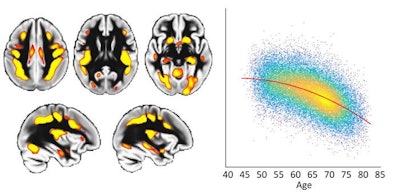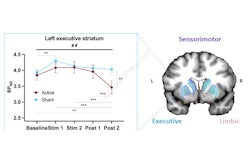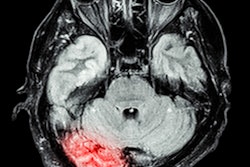MRI shows the effects particular risk factors such as diabetes, air pollution, and frequency of alcohol use have on "higher-order" brain regions located in the cerebral cortex, researchers have found.
A team led by Jordi Manuello, PhD, of the University of Oxford in the U.K. reported that these risk factors further increase an individual's vulnerability to conditions such as schizophrenia and Alzheimer's disease. The group's findings were published March 27 in Nature Communications.
"[Our] results provide a comprehensive picture of the role played by genetic and modifiable risk factors on these fragile parts of the brain," the authors noted.
Although previous studies have mapped a network of vulnerable higher-order brain regions -- that is, areas that develop later in adolescence and show earlier degeneration as people age -- exactly what the genetic influences on this fragile brain network remain unclear, the group explained. The team also wrote that it remains to be seen as to whether patient outcomes can be altered by addressing common modifiable risk factors for conditions such as schizophrenia or dementia.
 To the left of the figure, the red-yellow color denotes the regions that degenerate earlier than the rest of the brain and are vulnerable to Alzheimer’s disease. These brain areas are higher-order regions that process and combine information coming from our different senses. To the right of the figure, each dot represents the brain data from one UK Biobank participant. The overall curve shows that, in these particularly fragile regions of the brain, there is accelerated degeneration with age. Image courtesy of Gwenaëlle Douaud, PhD, and Jordi Manuello, PhD.
To the left of the figure, the red-yellow color denotes the regions that degenerate earlier than the rest of the brain and are vulnerable to Alzheimer’s disease. These brain areas are higher-order regions that process and combine information coming from our different senses. To the right of the figure, each dot represents the brain data from one UK Biobank participant. The overall curve shows that, in these particularly fragile regions of the brain, there is accelerated degeneration with age. Image courtesy of Gwenaëlle Douaud, PhD, and Jordi Manuello, PhD.
Manuello and colleagues conducted a study that included data from 40,000 U.K. Biobank participants over the age of 45 who underwent brain MR imaging. They assessed 161 factors for dementia and ranked their impact on this vulnerable brain network beyond the natural effects of aging. The risk factors, dubbed "modifiable," -- as they can be changed throughout a person's life -- were categorized into the following categories:
- Alcohol consumption
- Blood pressure
- Cholesterol
- Depression
- Diabetes
- Diet
- Education
- Hearing
- Inflammation
- Physical activity
- Pollution
- Sleep
- Smoking
- Socialization
- Weight
Overall, the investigators found "significant genome-wide associations between this brain network and seven genetic clusters implicated in cardiovascular deaths, schizophrenia, Alzheimer's and Parkinson's disease, and with the two antigens of the XG blood group located in the pseudoautosomal region of the sex chromosomes," they reported.
The study results shed light on some of the "most critical risk factors for dementia and provide novel information that can contribute to prevention and future strategies for targeted intervention, said senior author Gwenaëlle Douaud, PhD, also of Oxford, in a statement released by the university.
"We have found that several variations in the genome influence this brain network, and they are implicated in cardiovascular deaths, schizophrenia, Alzheimer's and Parkinson's diseases, as well as with the two antigens of a little-known blood group, the elusive XG antigen system, which was an entirely new and unexpected [discovery]," she said.
The complete study can be found here.




















